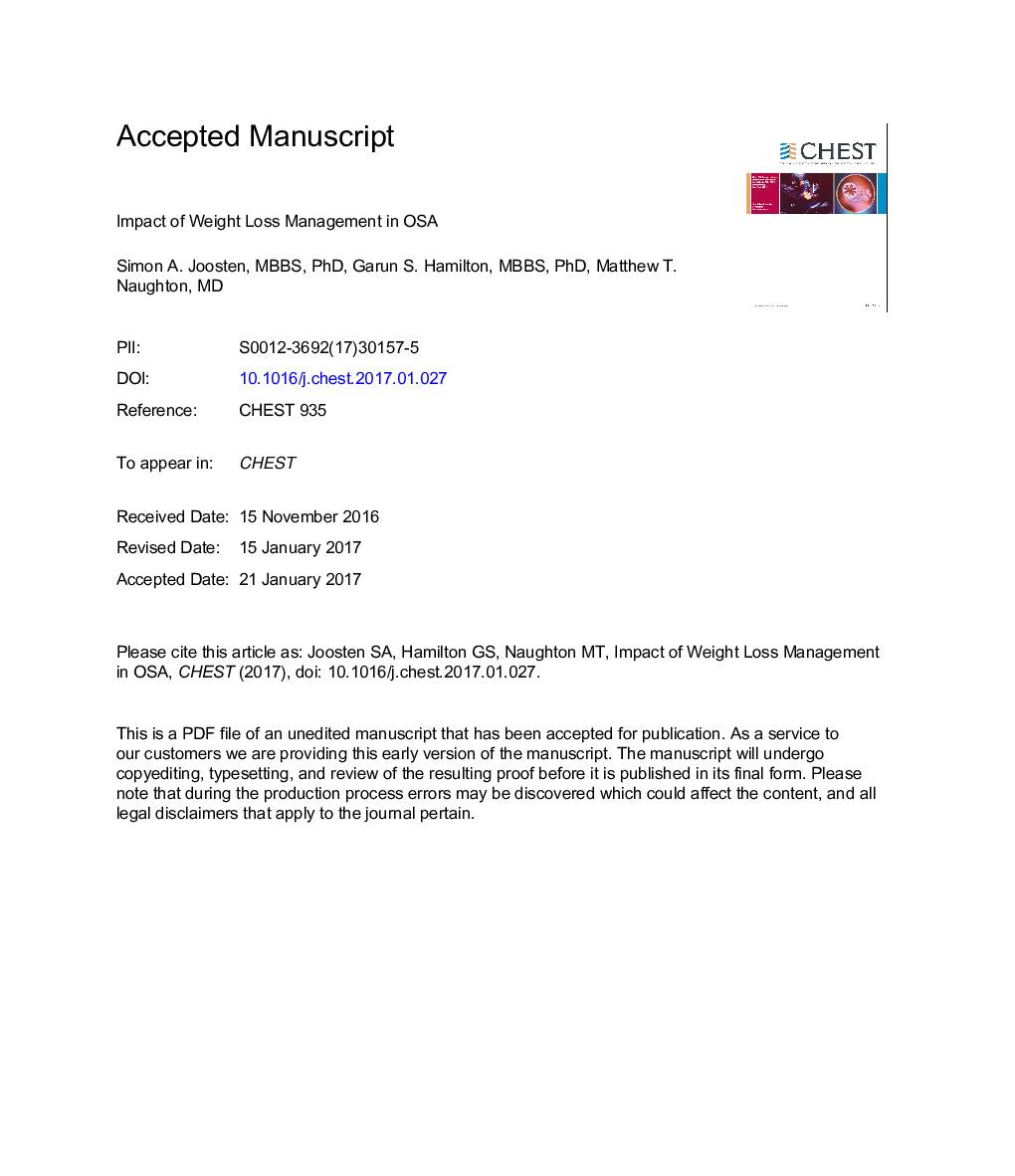| کد مقاله | کد نشریه | سال انتشار | مقاله انگلیسی | نسخه تمام متن |
|---|---|---|---|---|
| 5600519 | 1405298 | 2017 | 29 صفحه PDF | دانلود رایگان |
عنوان انگلیسی مقاله ISI
Impact of Weight Loss Management in OSA
دانلود مقاله + سفارش ترجمه
دانلود مقاله ISI انگلیسی
رایگان برای ایرانیان
کلمات کلیدی
VBGRYGBaHIBPDNIVT2DMRCTRandomized controlled trial - آزمایش تصادفی کنترل شدهsleep-disordered breathing - اختلال تنفسی در خوابEph - افBiliopancreatic diversion - انحراف بایلیپانکراسیnoninvasive ventilation - تهویه غیرتهاجمی یا ونتیلاسیون غیرتهاجمیType 2 diabetes mellitus - دیابت نوع دوapnea-hypopnea index - شاخص آپنه-هیپوپنیlaparoscopic adjustable gastric band - لاپاروسکوپی تنظیم نوار معدهObesity - مرض چاقیInc - وارزC-reactive protein - پروتئین واکنشی سیCRP - پروتئین واکنشی سی یا سی. آر. پی Vertical banded gastroplasty - گاستروپلاستی باریک عمودی
موضوعات مرتبط
علوم پزشکی و سلامت
پزشکی و دندانپزشکی
کاردیولوژی و پزشکی قلب و عروق
پیش نمایش صفحه اول مقاله

چکیده انگلیسی
The interaction between obesity and OSA is complex. Although it is often assumed that obesity is the major cause of OSA, and that treatment of the OSA might mitigate further weight gain, new evidence is emerging that suggests this may not be the case. Obesity explains about 60% of the variance of the apnea-hypopnea index (AHI) definition of OSA, mainly in those < 50 years and less so in the elderly. Moreover, long-term treatment of OSA with CPAP is associated with a small but significant weight gain. This weight gain effect may result from abolition of the increased work of breathing associated with OSA. Unfortunately, weight loss by either medical or surgical techniques, which often cures type 2 diabetes, has a beneficial effect on sleep apnea in only a minority of patients. A short jaw length may be predictive of a better outcome. The slight fall in the overall AHI with weight loss, however, may be associated with a larger drop in the nonsupine AHI, thus converting some patients from nonpositional to positional (ie, supine only) OSA. Importantly, patients undergoing surgical weight loss need close monitoring to prevent complications. Finally, in patients with moderate to severe obesity-related OSA, the combination of weight loss with CPAP appears more beneficial than either treatment in isolation.
ناشر
Database: Elsevier - ScienceDirect (ساینس دایرکت)
Journal: Chest - Volume 152, Issue 1, July 2017, Pages 194-203
Journal: Chest - Volume 152, Issue 1, July 2017, Pages 194-203
نویسندگان
Simon A. MBBS, PhD, Garun S. MBBS, PhD, Matthew T. MD,